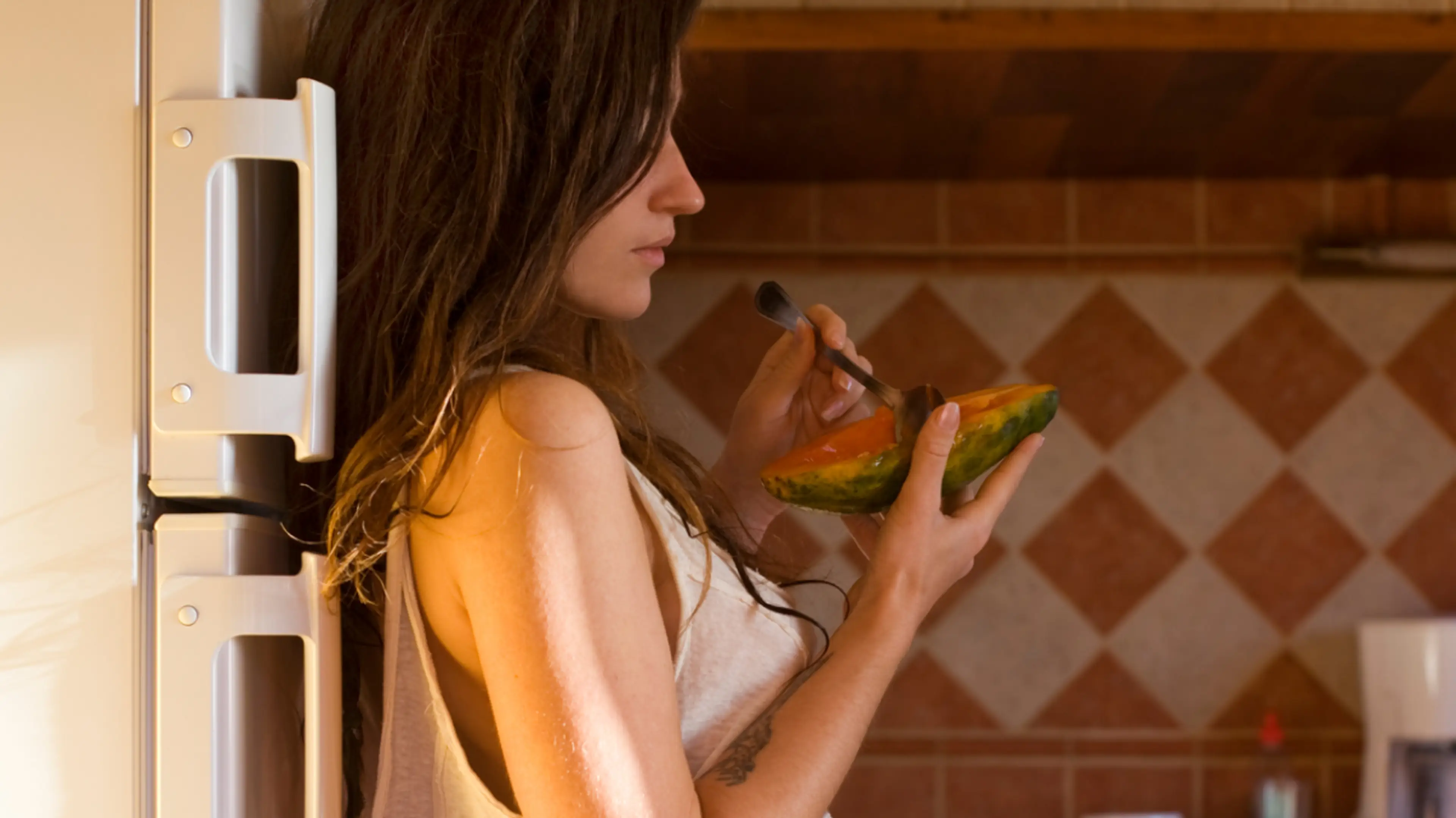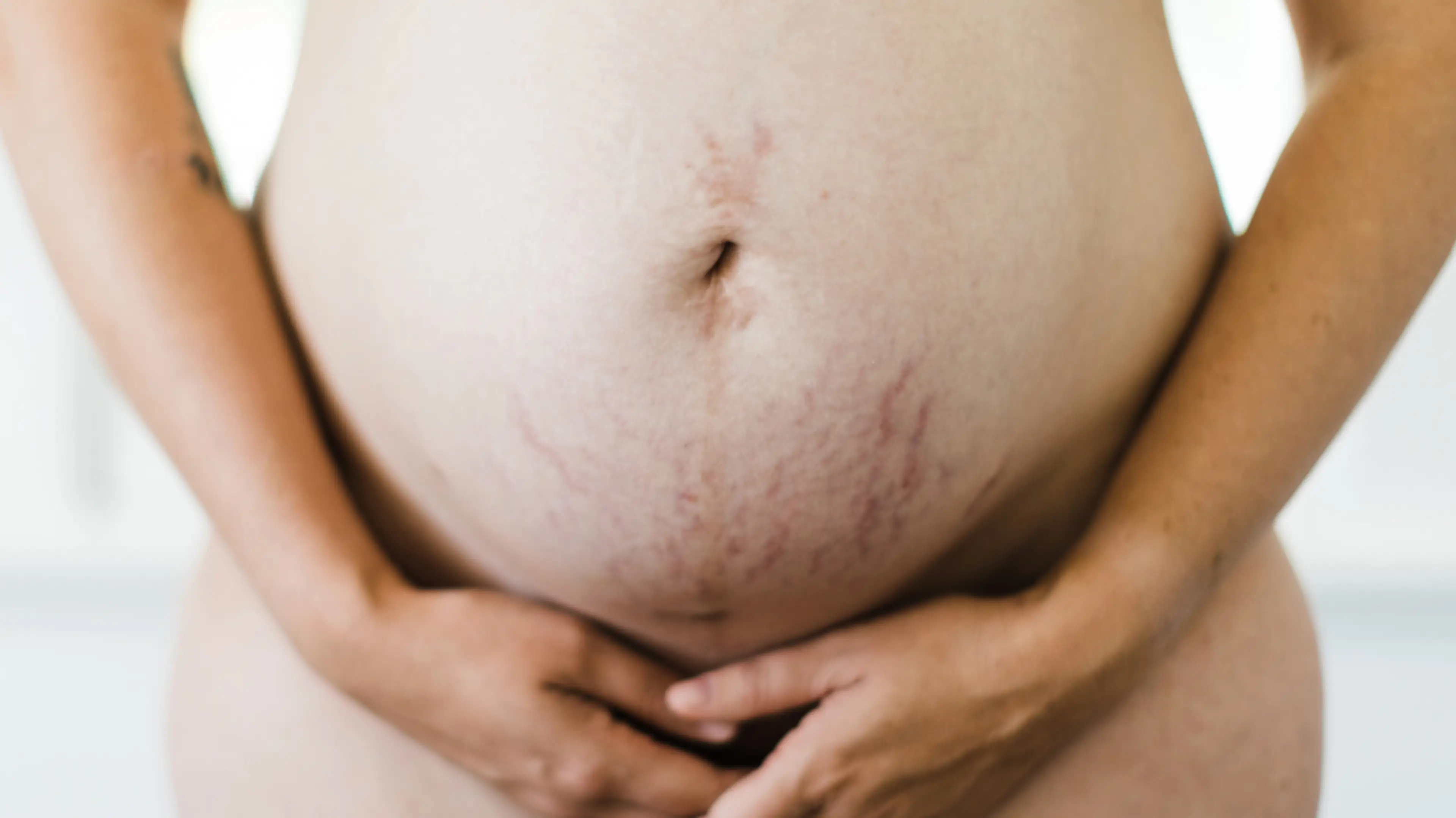A couple of years after having my first baby, a fellow journalist reached out about a story she was working on, asking for some thoughts on what I would have told myself, advice-wise, about being pregnant. My answer had to do with not researching every passing thought—and I specifically mentioned the time I queried a certain trusty search engine about the safety of hummus. Looking back now, as my son is about to turn 9, I may laugh at my late-night searches—I definitely needed to reign it in. But I can also empathize, knowing I just wanted to make sure my baby was as safe as possible.
Part of that is because figuring out what foods are safe to eat when you’re pregnant can often feel like a full-time job. Unpasteurized cheese: No. Avocados: Yes. Cold cuts: Only when they’re cooked. Growing a human is work enough, thank you very much. The last thing you need to add to your proverbial plate is an hour of research before every meal. So if you’ve heard rumblings about papaya and pregnancy and are wondering if the fruit is safe to eat or not, we’ve got you covered. Here, we unpack what we know so far.
Is Papaya Safe During Pregnancy?
The overall answer isn’t as clear-cut as we’d like—and that primarily has to do with the lack of studies done on papaya and pregnant women, explains Ali Bandier, MS, RD, CDN, a registered dietician and founder of New York City-based Senta Health1 , which focuses on pre/post-natal and pediatric nutrition. In a 2021 review of the research2 , for instance, study authors said that eating papaya is “cautioned” during pregnancy, mostly because the lack of research on expectant moms means the risk can’t fully be ruled out, says Bandier.
Other research highlights what has become one of the most common areas of concern: That eating unripe or semi-ripe papaya can possibly cause uterine contractions. In one animal study3 , (much of the research on papaya and pregnancy has been done on animals), research suggests that while eating ripe papaya is likely safe, you should be wary of unripe or semi-ripe papaya.
The thought behind this directive is that your body can misinterpret the latex found in papaya, which is present at higher levels in unripe and semi-ripe fruit, as a hormone and potentially cause uterine contractions—which of course, you don’t want, explains registered dietician Sarah Rueven, who specializes in fertility and pre- and post-natal nutrition and is the founder of Rooted Wellness4 . But keep in mind there isn’t a ton of research on the topic.
“The biggest thing to know when you’re pregnant is to try and eat papaya when it’s ripe as opposed to unripe,” Rueven advises, and steer clear of certain dishes like green papaya salad which specifically use unripe versions of the fruit.
Can You Eat Papaya If You’re TTC?
For folks trying to conceive, there’s also not a ton of data. But you may want to steer clear of papaya seeds and foods that contain them. Though it’s not as common to use papaya seeds in the U.S., you can spot them in certain dressings. Or, you may find a stray seed if your smoothie has papaya in it, though Rueven notes you shouldn’t stress too much if that’s the case.) “Again, they’re not quite sure exactly the mechanism, but the studies have shown that it can mess with hormones, and in that way, impact fertility,” Rueven says.
Bandier also points to one study5 that showed that papaya seed extract can have a negative impact on sperm motility. “It’s just a one-off study, so I don’t want to put too much weight onto it,” she notes. “But I think generally for fertility, there’s not enough data to make a call either way.”
Overall, when asked what advice she’d give her clients, Rueven says, “Make sure that you only eat ripe papaya. You can check for ripeness by its odor—it should smell sweet. If there is no odor and the fruit is hard, it is not ripe.”
Along with checking for a sweet odor, you can also look at the skin to ensure you are eating a ripe version of the fruit: Green means it’s unripe, while orange means it’s ripe, says Rueven, who notes that the flesh of the ripe papaya is also orange. Plus, it should be tender and easy to cut into.
Papaya’s Many Health Benefits–Especially Postpartum
If you do decide to munch on (only) ripe papaya, you’ll score a bunch of nutritional benefits. The fruit is high in the antioxidant lycopene, fiber to help with digestion (read: keeping you regular), and vitamins A and C, Reuven says.
Once you’ve had your baby, not only do the risks disappear, but papaya also offers a lot of postpartum benefits as your body heals. As Bandier explains, “Papaya has high levels of antioxidants, and some studies have shown that they help with wound healing.” Similarly, Reuven notes, “People who eat more fruits and vegetables that are high in carotenoids, like papaya, have a decrease in c-reactive protein, which is a marker of inflammation.” Also a plus: the fiber in papaya is helpful since it can be harder to go post-delivery.
Like with anything when it comes to pregnancy, if you’re worried about eating papaya while you’re pregnant—or unsure what’s best for you—talk to your OB or midwife.
And, in general, if you’re anxious about what you should and shouldn’t be eating, Reuven offers this advice: “I think the biggest thing I recommend is just using your common sense, especially when it comes to food safety. So making sure that you're eating cooked foods or that [you’re] keeping hot foods hot and cold foods cold.” Also important is knowing that, “if you slip up and have something that might be on the no-no list, most of the times, a one-time slip-up is not going to be a big deal and won't endanger you or the baby.”










